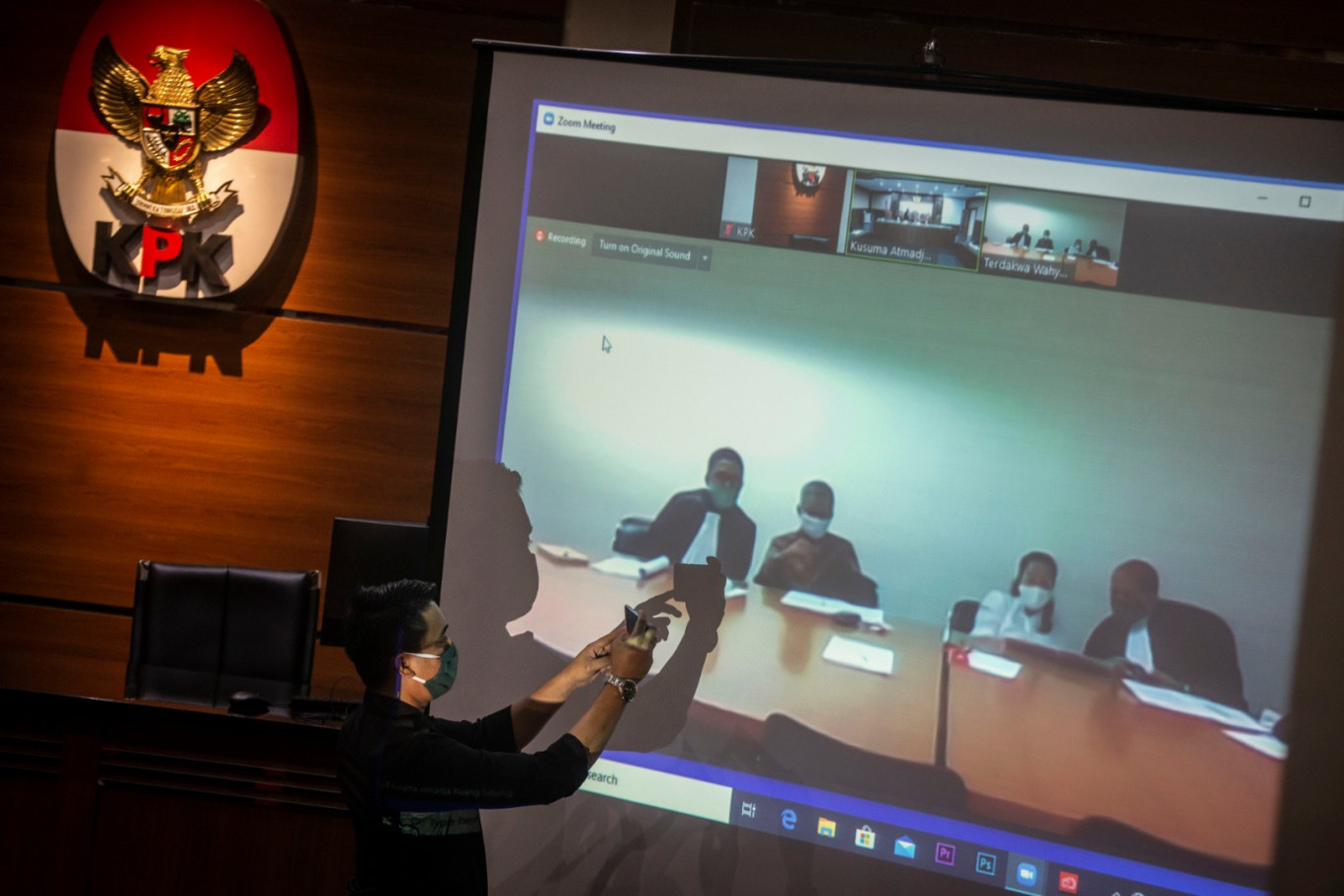
PDI-P politician receives 'light' sentence in KPU bribery case as key suspect remains free
by Moch. Fiqih Prawira AdjieJakarta Corruption Court judges sentenced Saeful Bahri, a member of the ruling Indonesian Democratic Party of Struggle (PDI-P), to one year and eight months behind bars for his involvement in a bribery case implicating General Elections Commission (KPU) commissioner Wahyu Setiawan.
During a verdict hearing on Thursday, the bench also fined the defendant Rp 150 million (US$10,214) or serve an additional four months in prison.
The sentence was lower than Corruption Eradication Commission (KPK) prosecutors’ demand of two years and eight months’ imprisonment.
Saeful was found guilty of bribing Wahyu and former Elections Supervisory Agency (Bawaslu) member Agustiani Tio Fridelina with $47,350 in exchange for the KPU commissioner’s approval for fellow PDI-P politician Harun Masiku to replace a deceased politician in the House of Representatives.
While KPK prosecutors said they were considering to file an appeal, the defendant said he accepted the verdict.
While Indonesia Corruption Watch (ICW) criticized the light sentence, the antigraft watchdog said the KPK should have filed more serious charges against him.
“The public can see clearly from this case that the KPK has become soft toward corruptors,” ICW activist Kurnia Ramadhana said on Thursday.
“How can the maximum deterrent effect be created against corruption if the punishment is still light,” he went on to say, adding that light sentences in corruption cases should be the focus of the new Supreme Court chief justice.
Harun, considered a key suspect in the case, is still on the loose after graft busters failed to capture him during an arrest operation in January. His escape and subsequent disappearance have turned the spotlight on Law and Human Rights Ministry and fellow PDI-P politician Yasonna Laoly.
While the KPK added Harun to its most-wanted list in January, the antigraft body decided to go ahead with its case against the three suspects without the key suspect's testimony.
[RA::KPK proceeds with bribery prosecution as key suspect Harun Masiku remains at large::https://www.thejakartapost.com/news/2020/03/08/kpk-proceeds-with-bribery-prosecution-as-key-suspect-harun-masiku-remains-at-large.html
On the same day, KPK prosecutors also indicted Wahyu and Agustiani in a separate hearing for allegedly accepting the bribe. They were charged under Article 11 of the Corruption Law, which prohibits state officials and civil servants from accepting gifts.
Apart from the Harun Masiku case, Wahyu was also indicted for allegedly accepting bribes from West Papua Governor Dominggus Mandacan pertaining the selection of provincial general elections commission members last year.
According to the KPK’s indictment letter against Wahyu, a copy of which was obtained by The Jakarta Post, West Papua general elections commission secretary Rosa Muhammad Thamrin Payapo allegedly believed Wahyu could help native Papuans be selected as a provincial commission member following a demand from residents.
In December, only three native Papuans passed the selection’s initial phase, triggering an uproar among locals. Rosa reported the incident to the governor, who was suspected of sending the money to Wahyu so that the three native Papuans could be eventually selected as commission members.
Dominggus then allegedly wired the illicit money to Rosa, who allegedly transferred the Rp 500 million to a bank account owned by Wahyu’s relative in January.